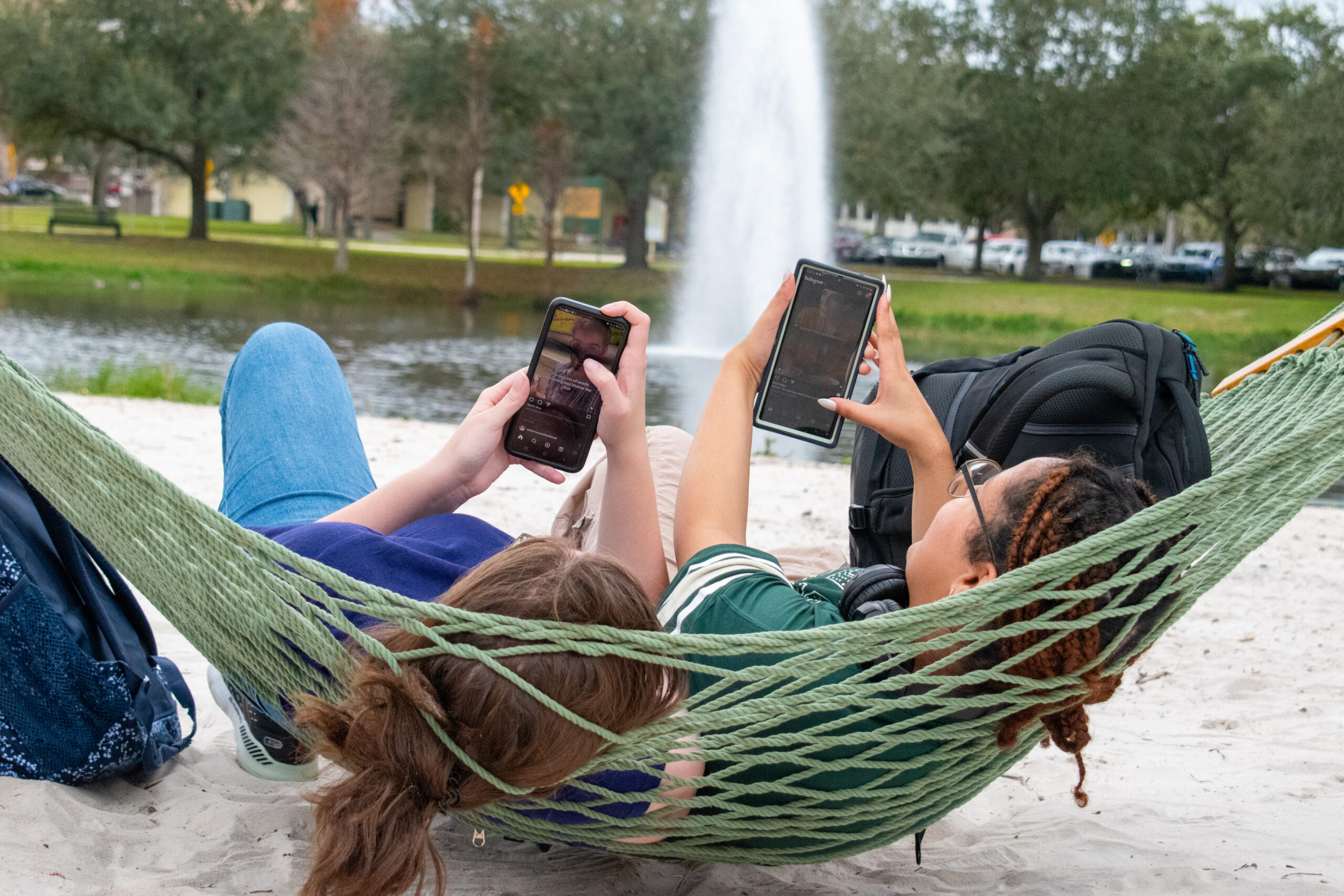OPINION: Stop doom-scrolling. Break the addiction.

Students often escape from the reality of exams and homework by scrolling through TikTok and Instagram. They spend this time wishing they had the perfect lives that influencers present before realizing their scrolling has become an addiction.
Feelings of stress, anxiety and depression are already extremely common among college students with 44% reporting symptoms of depression and 37% reporting symptoms of anxiety, according to an article by the National Center on Safe Supportive Learning Environments.
Social media should not add to these feelings of stress, anxiety and depression, making it vital for students to take social media breaks.
Students should take social media breaks so they have the opportunity to not only avoid poor mental health, but also improve overall social communication in a way that social media cannot.
“These ‘harmless’ sites have become hotbeds of bullying, shaming and chasing clout, doing whatever possible to grab the attention of other users, the goal, of course, being virality,” said Deborah Bowen, a USF public relations professor that researches changes in human behavior with relation to new media platforms.
Adults 19-25 are affected by social media addiction, which is defined by spending six hours or more on social media, according to a study from The National Library of Medicine.
Individuals who experience social media addiction can face diminished social skills, depression and anxiety, according to an article by Addiction Center.
Out of 55 USF students, 50.9% reported spending six or more hours on social media daily, according to a Jan. 9 survey conducted by The Oracle.
There are about 210 million users suffering from social media addiction in the world, according to an article by Addiction Help.
Only four surveyed students reported they will occasionally take social media breaks during class time, study time, every 20 minutes or a month at a time, while the other 51 said they do not take any breaks.
However, breaks shorter than a week may not be useful to those suffering from addiction as the benefits are not as lasting.
A one-week break from social media is necessary to see significant improvements in overall mental health, according to a research article by the Cyberpsychology, Behavior and Social Networking journal.
Some students may find it difficult to completely cut social media out of their lives for long periods of time. To start, students should recognize triggers that cause them to go on social media and then implement methods to take breaks, such as using screen timers for apps.
The perfect life often portrayed on social media platforms can cause users to have negative emotions as a result of constant comparison with social media influences. This activity in excess can lead to the development of poor mental health.
Bowen also emphasized that younger users, especially students, experience more harm to their mental health. She said her research has shown a correlation between high social media use and suicidal ideations within younger populations.
Excessive social media usage has become an issue among some USF students, as 47% out of 55 respondents reported feeling stress when using social media, according to The Oracle’s survey.
Becoming addicted to social media is not only mentally harmful, but academically harmful too.
Almost 80% of USF students surveyed reported that social media not only distracts them from academics, but from daily tasks as well.
Some social media users believe that online platforms are beneficial as they help to start communication with anyone and allow spaces for creative expression.
However, there are severe harms such as diminished mental health and poor social interactions that students don’t consider.
By implementing social media breaks, anxiety and depression rates lower, sleep quality improves, as well as mood, self-esteem and social connections, Bowen said.
“We might miss seeing the posts from friends and family, but the social break allows for connection with these same people on a deeper, more personal level,” Bowen said.
Social media will always be a part of students’ lives in some way, making it important to self-regulate. Although these platforms can provide benefits to some, students need to use social media with caution.







